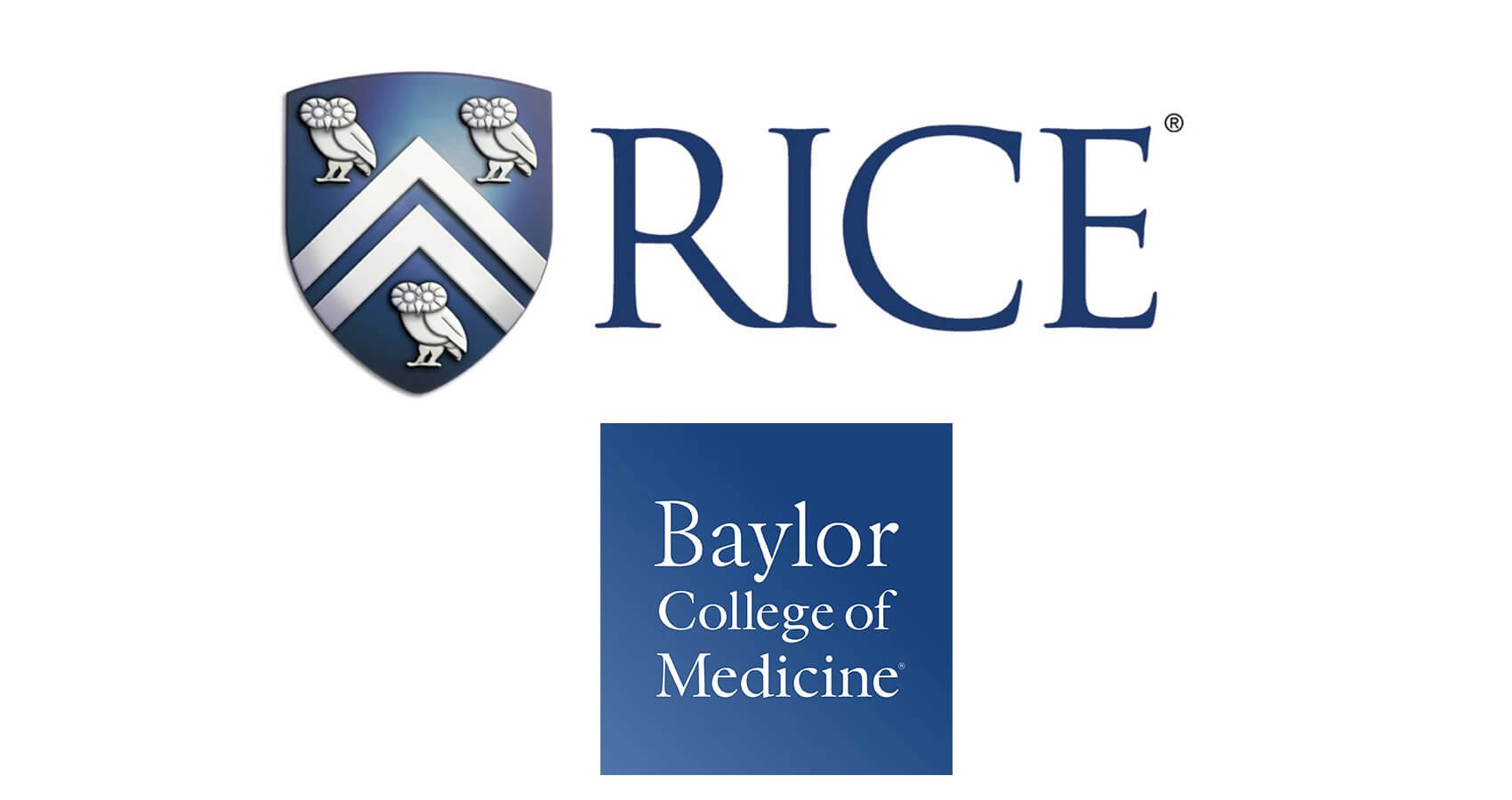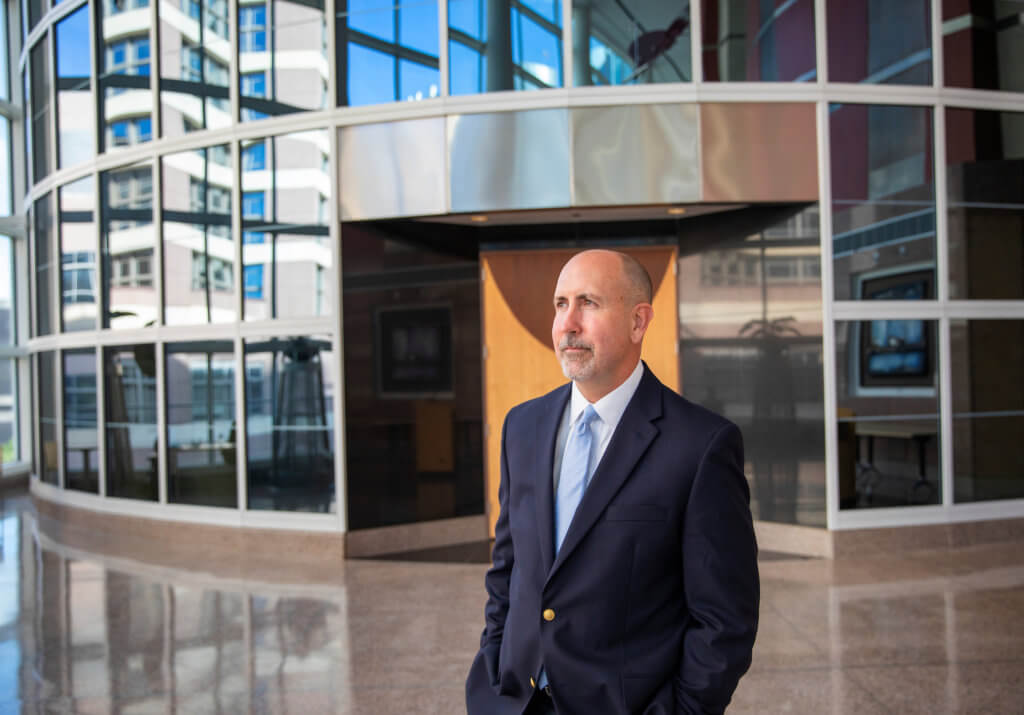Rice University, Baylor College of Medicine sign interinstitutional agreement

Rice University and Baylor College of Medicine have signed an interinstitutional agreement to facilitate research and teaching collaborations between the two private schools.
“Rice and Baylor College of Medicine share a profound commitment to pre-eminence in research, education and service to humanity,” states the agreement signed by Rice President David Leebron and Baylor President and CEO Paul Klotman.
The agreement notes that scientific researchers at the two institutions share a long history of individual collaboration. In fact, the agreement was signed 50 years after Rice researchers joined Dr. Michael DeBakey and his Baylor team to produce the first artificial heart.
“Rice and Baylor College of Medicine now wish to expand their relationship by entering into this agreement to facilitate synergies, build structural interfaces and remove barriers to collaboration to leverage the distinctive strengths of each institution,” the agreement states.
In 2009 Rice and Baylor engaged in discussions about a potential merger but ultimately decided to strengthen their existing academic and research relationship without a formal merger. The new interinstitutional agreement is intended to make it easier for faculty, staff and students from both schools to work together.
Among the provisions of the new agreement:
* Joint faculty appointments are encouraged so that faculty from each school can develop joint research and educational programs, give lectures, teach, direct graduate and undergraduate students, serve on dissertation committees, write and administer grants, perform basic and translational research studies, compile and analyze data and submit publications and presentations of research data.
* Rice and Baylor will establish a cooperative program for shared use of certain research-based core laboratories and service centers.
* Students from each school can enroll in graduate credit courses from either institution.
* Rice faculty who obtain Baylor faculty appointments will have access to Baylor’s medical library.
“This agreement minimizes red tape and paperwork so that our faculty and students can collaborate with Baylor faculty and share teaching and research resources and facilities more conveniently,” said Dan Carson, Rice vice provost for strategic partnerships. For more than two years Carson has been developing the agreement with Adam Kuspa, Baylor’s senior vice president and dean of research, in consultation with a number of Rice and Baylor faculty and administrators.
Carson noted that Baylor has world-class faculty and facilities in the areas of genomics and neuroscience, and Rice students and faculty have shown great interest in expanding research and educational programs in these areas. “It would not be practical in any way for Rice to duplicate the capabilities Baylor already has in this regard,” he said. “This agreement effectively opens the doors to these capabilities for our students and faculty.”
“We have had very productive and significant educational and research collaborations with Rice University for decades,” Kuspa said. “We are committed to the continued growth of our academic programs with Rice and our other university partners. These collaborations make us stronger and more attractive to both scientists and students.”
Baylor also has academic agreements with Baylor University, University of Houston, The University of Texas-Pan American, The University of Texas Health Science Center at Houston and Texas A&M University.
Rice and Baylor will establish an oversight council to implement the new agreement. Leebron and Klotman will each appoint three members to serve on the council for one-year terms; a member from Baylor will serve as chair and a member from Rice will serve as vice chair, and those positions will alternate annually.
More than 40 Rice and Baylor faculty members already have joint adjunct appointments. Scientists from the two schools collaborate on joint research funded by more than $3 million in grants from government and private sources and have pending collaborations valued at nearly $20 million in funding. Baylor helped Rice establish its neuroscience program.
Rice also participates in Baylor’s M.D./Ph.D. Medical Scientist Training Program, whose participants earn a medical degree from Baylor and a doctoral degree from one of the 14 programs in Baylor’s Graduate School of Biomedical Sciences or from bioengineering at Rice.
Rice’s Jones Graduate School of Business and Baylor offer a five-year combined MBA/M.D. program for physicians who want state-of-the-art medical and business skills.
The interinstitutional agreement should have a positive effect on these current collaborations as well as new joint programs and exchanges, Carson said. “One of Rice’s Priorities for the New Century is to strengthen collaborations with the Texas Medical Center. Rice also has academic agreements with UTHealth, including a recently established accelerated B.A./M.P.H. program, as well as The University of Texas MD Anderson Cancer Center.”



